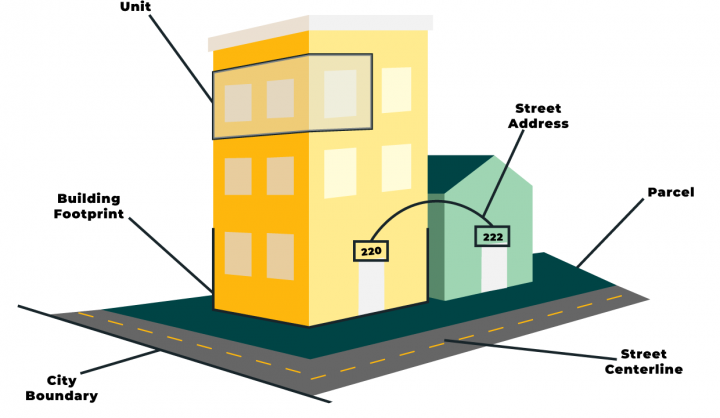- January 21, 2022
- Workforce
Louisville, Kentucky is known for many things: the famous fried chicken, Louisville Slugger baseball bats, the Kentucky Derby, Muhammad Ali. But Louisville isn’t immune to challenges like “coastal brain drain” and automation-driven job losses, twin employment crises that have particularly impacted low-income residents of color and local youth. These twin issues are forefront for city leaders, and thanks to the efforts and collaboration of stakeholders across the public, private, education, and non-profit sectors, Louisville youth now have the opportunity to break the underemployment cycle.
Grace Simrall is the chief of Civic Innovation and Technology for the Louisville Metro Government, acting as Mayor Greg Fischer’s senior advisor as it relates to “civic innovation, performance improvement and incremental innovation work, information technology, and Louisville’s work as it relates to the American Rescue Plan stimulus monies.” Simrall is also the executive sponsor of the city’s “digital alliance” with the Microsoft Future of Work project, a public-private partnership focused on diversifying the tech space by creating a digital and technological training and employment hub in Louisville.
Reversing the Midwest “brain drain” and creating an inclusive environment for youth of color in tech is a tall order — not to mention coalescing the various stakeholder ideas. Simrall explained that the Executive Director at the Future of Work Initiative Alisia McClain set out “to solve the needs of multiple stakeholders like the local nonprofits who desperately need to figure out how to better use data to support their mission; students who need to learn these skills but also want to get paid for these skills; employers who definitely need a workforce who has these skills in the future; the school itself, which is interested in having their students develop these skills; and the universities that have a big commitment to teaching their students about racial equity; and of course the city who wants to move the work forward for the future of the city.”
This effort resulted in the Butterfly Project pilot - a 12 week program (January to March 2021) that partnered small groups of high school and college students with local, social justice oriented nonprofits. The students learned about each organization’s mission, and determined what data would be useful to help fulfill it; they then followed the General Assembly business-oriented data science curriculum to learn the necessary data science skills to work with each nonprofit. The participating youth also engaged in a social justice curriculum that helped contextualize their part in local issues and activism around issues of transportation, maternal health, and gentrification.
The feedback was immediate, and immediately positive. The response from all stakeholders was so outstanding that Simrall and McClain submitted The Butterfly Project to the 2021 Bloomberg Global Mayors Challenge in March — before they had fully finished the pilot. A few months later, Louisville was chosen as a Champion City and advanced to the next stage (the final winning cities have not yet been announced). As a result of the Champion City phase, Simrall said, “the team realized, at its heart, the Butterfly Project should be turned into a social justice-centered data science curriculum.”
Simrall credits McClain and her team with the flexibility and openness needed to produce such an important and transformative project. “We learned a lot through this process,” Simrall said, “and Alisia deserves a lot of the credit.” Since there were so many stakeholders in the initial pilot, The Butterfly Project had to harness multiple different viewpoints and goals.
For the students, the goal was to make them more civic-minded thinkers while giving them tangible, transferable data science tools and skills. The nonprofits shared their work and experience with the students and in turn received necessary assistance with data, evidence, and impact storytelling. And the local employers and private partners who supported the project now have more homegrown, diverse tech talent. This is especially important in Louisville, a city that is “incredibly vulnerable to job loss because a lot of jobs in legacy industries could easily be automated” said Simrall, who pointed out that non-white residents are even more vulnerable to redundancies.
Regardless of whether the Butterfly Project wins the Bloomberg Philanthropies Global Mayors Challenge competition the Louisville team is still moving forward with this work. For the next iteration, the high school students will again be from a mostly Black school; however, they will be matched with college students at Simmons College, a local historically black college/university (HBCU). The Butterfly Project is explicitly a social justice project, and all stakeholders are intentional at weaving equity into every stage. This next matching will take the pilot one step further, by showing the younger students a group of HBCU students who are preparing for data and tech careers; after, said Simrall, “you can’t be what you can’t see.”
Of course, the goal is not for every student to become a data scientist, but rather to show how data tools and technical skills can inform civic engagement, self-efficacy, and future careers. Shania Stivers, a participating student from Louisville Central High School, wants to be a lawyer. Yet after the 12 week pilot she came away with a new perspective: “I never thought that I would use data or data analytics - I’m really focused on law, now I’m thinking about how I could use data in the justice system. I’m really glad I took this on!”
Multiple other cities have expressed interest in The Butterfly Project to Simrall, who would love to see this work scaled to other cities. While Louisville has a partnership with Microsoft’s Future of Work initiative, other cities can enact the same style of program by engaging with and recruiting local stakeholders. McClain is working on a Butterfly Project playbook that outlines the focus on social justice, data science, interpersonal and storytelling skills, and local civic action. Due to the pandemic the curriculum has been completely online, which makes it even easier to adapt for other cities, although The Butterfly Project team is also available to help establish similar programs in other locations.
“Cities really need to embrace giving young people a chance to be truly empowered with their social justice work,” said Simrall, “protesting is important but at the same time if there’s a way to give young people additional tools in their demand for social justice, let’s do it.” The Butterfly Project — named in honor of famous Louisville resident and civil rights activist Muhammad Ali — is equipping youth with the necessary tools to shape a more equitable and collective future.





